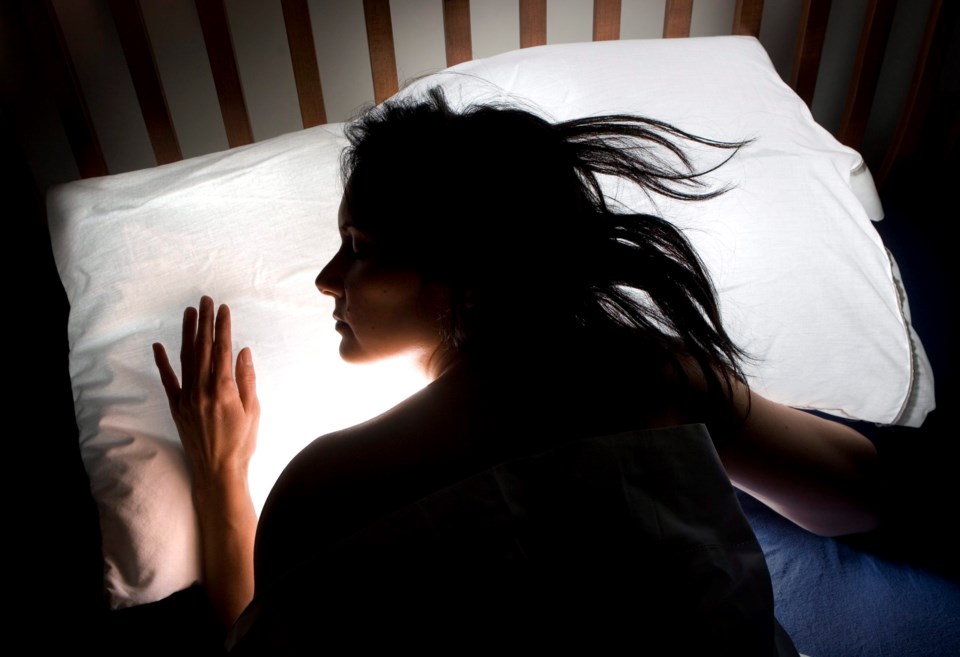The COVID-19 pandemic has already impacted virtually every waking moment of our lives. Now it seems to be affecting our sleeping moments too.
Stacey Jenkins, a psychotherapist and Jungian analyst in Toronto, said she's received an influx of inquiries from people who have been remembering their dreams more since the coronavirus outbreak began.
And those visions have been much more vivid than usual.
Jenkins said that can be expected at a time when our daily lives are suddenly free of the stimulus that would normally hold our focus. She used the analogy of an ocean to describe our subconscious, with fish representing the contents of our dreams.
"When there's a lot going on above the water and we're keeping busy and fulfilling our obligations in life — work, family, friends — we really don't notice what's under the water," Jenkins said in a phone interview with The Canadian Press.
"But in a crisis, many of our responsibilities are curtailed or happening on a much smaller scope. We're seeing fewer people, there's a lot less stimulus in waking life. And that means the fish in the water get noticed."
Imants Baruss, a psychology professor at Western University in London, Ont., also believes the seemingly upgraded level of vivid visions could mean we simply have more time to think about them.
He said people who are able to sleep more during the pandemic — and those able to wake up naturally without an alarm clock — will likely have better dream recollection.
"We're having more of an opportunity to sleep now," Baruss said. "Normally we would wake up in a daze and we wouldn't remember those dreams. But now we can wake up at a more leisurely pace.
"And the dreams that we have later in the night tend to have a more narrative structure, they're more the kind of dreams we're likely to remember. So now people are noticing them and saying, 'Wow, look how vivid they are.'"
Sleep isn't coming that easily to everyone, however.
Sleep specialist Amanda Jewson says peoples' sleeping patterns — not just their dreams — are being upended by the increase in stress and anxiety surrounding the coronavirus threat. That stress in turn raises cortisol and adrenalin levels, making it difficult to fall asleep at night.
But Jewson thinks anxiety could also be causing those vivid dreams, which happen in the REM portion of the sleep cycle instead of the more restorative stages.
"We're maybe not quite getting into that deep sleep and probably going in and out of light and REM sleep," Jewson said. "And that makes sense because the more stressed we are the harder it is to get into those more restful sleep states where we don't remember our dreams."
Baruss agrees that anxiety could be playing a role in the uptick in vivid dreams.
He urges people to take steps to reduce stress during the pandemic — going outside, cooking, doing activities they would normally enjoy.
He also worries we could be potentially underestimating how traumatic the pandemic has been for a lot of people. And our subconscious, he said, could be an outlet where that trauma is presenting.
"They might be able to suppress it elsewhere in other parts of their lives but we know historically that one of the ways trauma plays itself out is in dreams," Baruss said. "And now we're dealing with an ongoing trauma and we're sort of in the middle of it.
"So you're getting people having increased anxiety at the same time as the trauma, and people are having very vivid dreams because of that level of anxiety."
Jenkins, meanwhile, says learning to connect with our dreams can be a stress-reliever of its own.
She said understanding our unconscious can bring out "deeper roots of our personalities."
"And by doing that, it's stabilizing. You get a sense of an inner guidance," she added. "So working with dreams can help allay fears that arise because of the pandemic."
What about people who don't believe that dreams hold any meaning though?
Baruss says that's their loss.
"That's fine, they don't have to. ... but the psyche is very interactive," he said. "If you think your dreams don't mean anything than your psyche might not bother to try to send you messages — it will just run some junk in the background.
"But like anything, if you change your attitude, if you start paying attention to your dreams, they might respond and start giving you something more useful."
This report by The Canadian Press was first published April 17, 2020.
Melissa Couto, The Canadian Press




